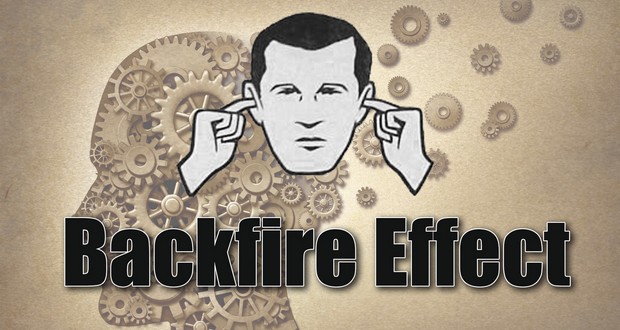11Online disinhibition effect

Online disinhibition effect refers to the way people behave on the internet with less restraint than in real-world situations. Many people change their natural behavior online. It is an extremely powerful cognitive phenomenon that is represented by the loosening of social restrictions and inhibitions that would otherwise be present in normal face-to-face interaction. Because of the loss of inhibition, some internet users show extreme and emotional tendencies. Some people will become more affectionate and less guarded, speaking out to others about their feelings in an attempt to achieve emotional catharsis.
12Illusory superiority

Illusory superiority is a cognitive bias that causes people to overestimate their positive abilities and underestimate their negative qualities in relation to others. It is a positive illusion that has been studied extensively in social psychology. Positive illusions have been described as human’s unrealistically favorable attitude toward themselves. There are three broad categories of positive illusions, inflated assessment of one’s own abilities, unrealistic optimism about the future and an illusion of control. Illusory superiority is often referred to as the above average effect. The above-average effect states that people regard themselves more positively and less negatively than others actually perceive them.
13Cognitive dissonance

Cognitive dissonance is perhaps one of the weirdest and most unsettling findings in psychology. It is the idea that we find it hard to hold two contradictory beliefs, so we unconsciously adjust one to make it fit with the other. In the classic study, students found a boring task more interesting if they were paid less to take part. Our unconscious reasons like this: if I didn’t do it for money, then I must have done it because it was interesting. As if by magic, a boring task becomes more interesting because otherwise, I can’t explain my behavior.
14Tetris effect

Tetris effect is where a person devoting a large amount of time to a particular pattern-based activity (which in this case is Tetris) will start unconsciously thinking and dreaming about it. People who played Tetris for a prolonged amount of time could find themselves thinking about ways different shapes in the real world can fit together, such as the boxes on a supermarket shelf, the buildings on a street, or hallucinating pieces being generated and falling into place on an invisible layout.
15Cheerleader effect

The cheerleader effect, also known as the group attractiveness effect is the cognitive bias which causes people to think individuals are more attractive when they are in a group. The term was coined in 2008 during the How I Met Your Mother episode “Not a Father's Day”, and has been backed up by clinical research by Drew Walker and Edward Vul. The effect occurs because of the brain’s tendency to calculate the average properties of an object when viewing a group.
16Backfire effect

The backfire effect occurs when, in the face of contradictory evidence, established beliefs do not change but actually get stronger. The effect has been demonstrated experimentally in psychological tests, where subjects are given data that either reinforces or goes against their existing biases and in most cases people can be shown to increase their confidence in their prior position regardless of the evidence they were faced with.
17Dunning Kruger effect

Dunning Kruger effect is the tendency for unskilled individuals to overestimate their own ability and the tendency for experts to underestimate their own ability. Bertrand Russel said, “in the modern world the stupid are cocksure while the intelligent are full of doubt.”
Latest FactRepublic Video:
15 Most Controversial & Costly Blunders in History
18Social loafing

In social psychology, social loafing is the phenomenon of people exerting less effort to achieve a goal when they work in a group than when they work alone. A researcher in the 1970s blindfolded participants and told them they were going to play tug-of-war against another team. When they were told they had 3 others pulling with them, they pulled 18% less strenuously than when they were told they were alone.
19Semantic satiation

Semantic satiation is the psychological phenomenon in which repetition causes a word or phrase to temporarily lose meaning for the listener, who then processes the speech as repeated meaningless sounds. It is especially noticeable if you repeat a strange word several times to yourself in order to get the pronunciation right and the accent on the correct syllable and it ends up sounding stranger and stranger the more you try before becoming complete nonsense to your ears.
20IKEA effect

IKEA effect is the tendency for people to place a disproportionately high value on objects that they partially assembled themselves, such as furniture from IKEA, regardless of the quality of the end result.



